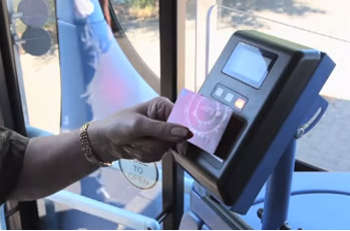Transport for the North (TfN) has indicated it favours contactless payments rather than Oyster style smart cards, as a way to future proof its smart ticketing plans.
Passengers in the North of England now appear unlikely to be offered a ‘Noyster card’ - a plastic smartcard based on London’s electronic ticketing system, although such smart card systems are not being ruled out.

TfN wants to 'future proof' smart ticketing solutions
The news comes as the Government is under increasing pressure to deliver on smart ticketing, with Patrick McLoughlin failing to deny that the £80m South East Flexible Ticketing (SEFT) had run into trouble and been effectively scrapped by the public sector.
In the comprehensive spending review in November 2015, chancellor George Osborne pledged £150m to help TfN develop a programme to deliver smart and integrated travel for the region.
A spokeswoman for TfN said the organisation was developing plans for a new pan-northern system of smart and integrated ticketing and would set out an implementation plan in March 2016.
Although it did not rule out Oyster-style smart cards, TfN appeared to suggest that more ‘future-proof’ technologies were being prioritised.
A TfN’s spokeswoman said: ‘We are working closely with the UK Cards Association - the trade body for the card payments industry in the UK - on the development of their contactless models, which includes options for payment using new technologies, such as contactless credit/debit cards, mobile phones and smart watches, as well as smart cards.
‘We’re also exploring an account-based system where travelers would use a contactless card or mobile as a registered token to travel, meaning no need to charge up in advance and more flexibility for passengers. It would also enable passengers to make payments over the £30 contactless limit and is more future-proof as it could support emerging technologies.
‘It’s crucial that a system that we develop now works for the future passengers of the north and, as well as embracing new technologies, accessibility is a key priority. We are conducting research to understand current and future customer requirements to ensure that our system delivers what passengers need both now and in the future.’
Oyster cards are still widely used in the capital however Transport for London has recently shifted towards contactless payment systems, on credit/debit cards for instance.
More than 300 million journeys have now been made using TfL’s contactless payment technology, which it developed in-house, since its introduction in 2012.